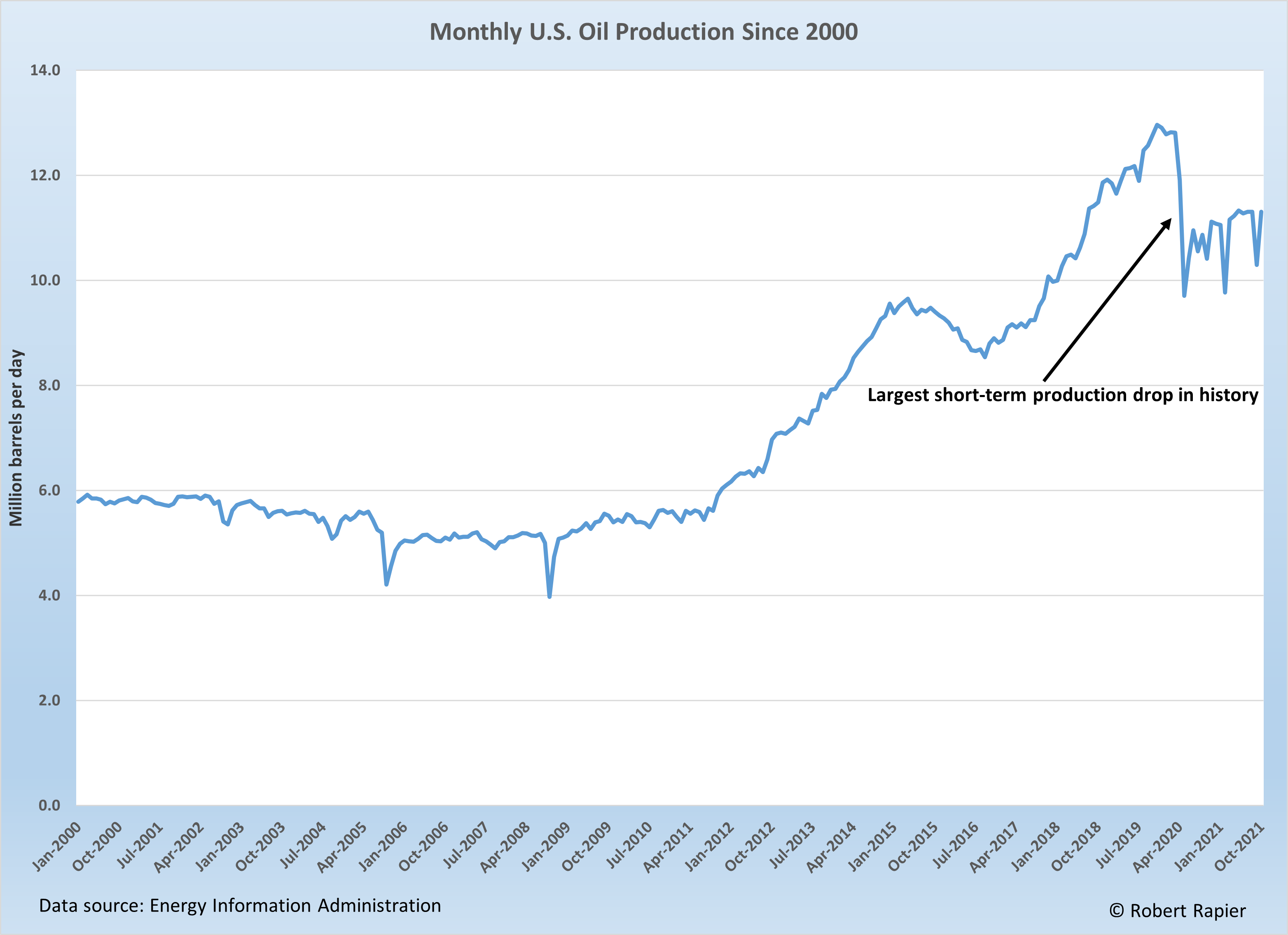You may find it curious that the price of oil is still above $80 a barrel. This is also why gasoline prices are at the highest levels since 2014. But, there is a good explanation for it.
In January 2020, just before the Covid-19 pandemic began to sweep across the U.S., domestic oil production was 12.8 million barrels per day (BPD). Production remained at that level for a couple of months despite the double-whammy of a price war between Saudi Arabia and Russia, and growing demand destruction as a result of the Covid-19 pandemic.
But the situation was untenable. The price of oil eventually fell to zero and then kept going. That forced some producers into bankruptcy, resulting in the largest short-term oil production drop in U.S. history.
 Production declined all the way to 9.7 million BPD in May 2020 (which was the month after oil prices went negative), but has since bounced back to 11.3 million BPD.
Production declined all the way to 9.7 million BPD in May 2020 (which was the month after oil prices went negative), but has since bounced back to 11.3 million BPD.
Meanwhile, U.S. oil demand has jumped back above 21.8 million BPD, which is where it was prior to the Covid-induced plunge. This loss of supply and recovery of demand is the biggest reason we have $80/bbl oil today when it was only $60/bbl just before the pandemic.
The loss of supply has caused the U.S. to lose its briefly-held status as a net exporter of petroleum and petroleum products. That number had trended down from a high of 13 million BPD of imports in 2005 all the way to over a million BPD of exports in 2020. Now we have returned to net importer status, most recently importing a net average of 1.3 million BPD over the past four weeks.
But there are some signs that help may be on the way. In January 2020 there were nearly 700 rigs drilling for oil in the U.S. By the summer of 2020, that number had fallen below 200. The rig count has steadily recovered over the past year to reach 445 — the highest level since the pandemic started.
The downside is that it can take months at a minimum for new drilling activity to turn into oil production. So don’t rush out and buy that gas guzzler just yet.
Follow Robert Rapier on Twitter, LinkedIn, or Facebook.